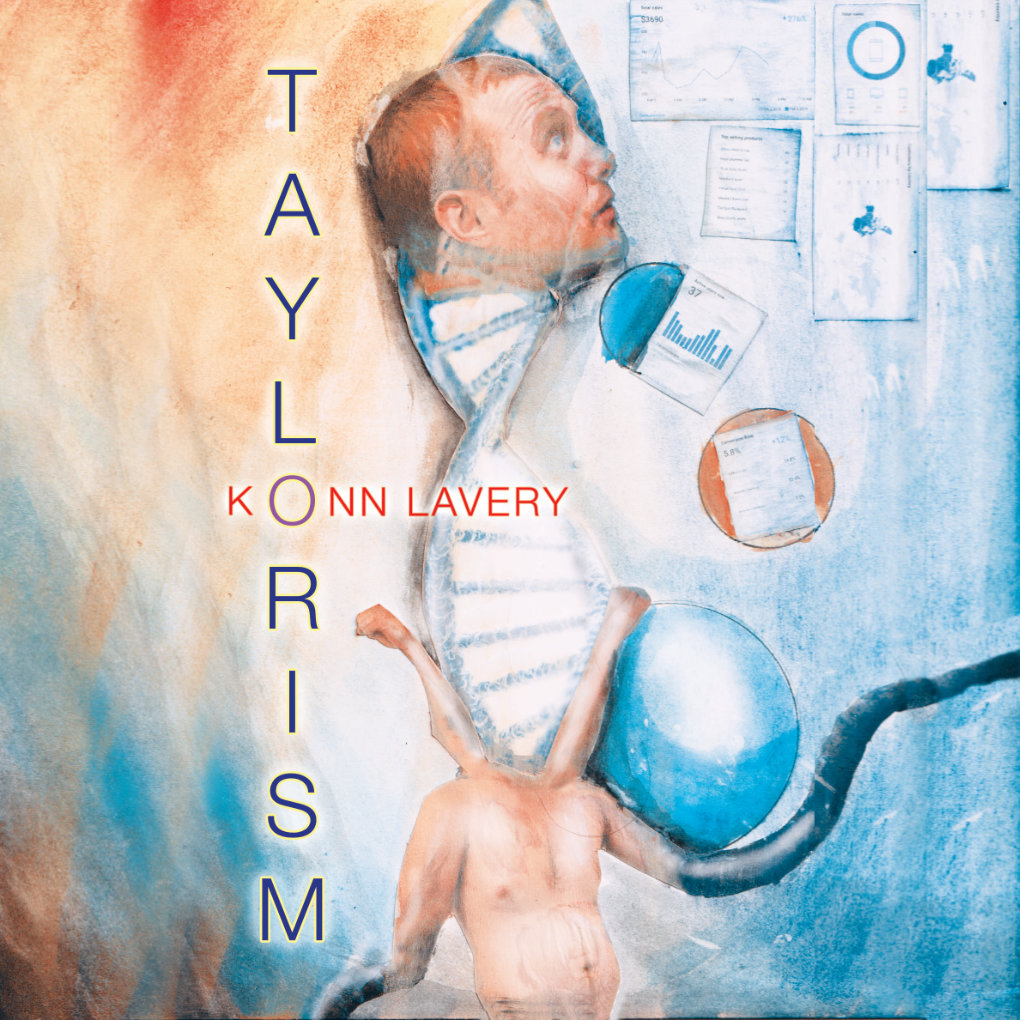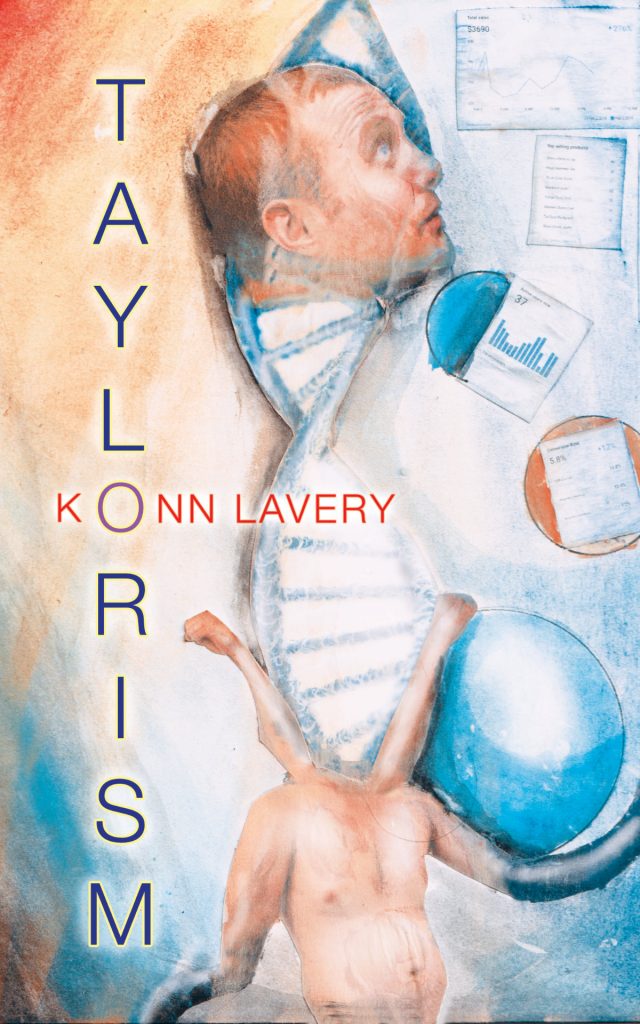
Taylorism
Estimated Reading Time:
The world has been streamlined. Scientific management has reached the peak of human ability. The machines will improve on our genetics. Taylorism is June’s short story that brings you into a scifi horror story of synthesized workflow, forever changing the human species.
Taylorism
Working diligently gives you respect amongst your peers, helps you avoid trouble, and gets the job done more efficiently. I know this because of my strong work ethic. My coworkers always wonder how I can multitask, taking on several projects at a time, all while attending a video conference call. Boom. There is no secret to my ability other than focused hard work.
You hear about people who claim that working hard is just spinning your tires. These types of people will say all you have to do is delegate tasks and work smart. I don’t buy that. Those are lazy people that don’t know how to do what needs to be done. If they knew, they would save themselves the effort of trying to scheme a new way to cut corners. Working smart–give me a break.
Each morning I grab my cup of coffee from the café across the street, chat it up, and make it to the office. The boss doesn’t mind if I am a little late sometimes. The relaxed work schedule is a good model as long as the work is completed. The loose policy was good before the company buyout. The creative work environment with lucid roles is a thing of the past. Manageficient Enterprises has been in the process of absorbing design and engineering firms for years. They own just about every company in the industry in one way or another. They’ve cleverly positioned themselves as an umbrella company, working in the shadows and letting the smaller companies appear independent.
Manageficient Enterprises’ primary philosophy is maximizing process potential. The C.E.O. has public opinions about synthesizing workflows to capture human capacities. It sounds like a bunch of corporate jargon if you ask me. Now, I’ve seen the synthesized workflows put into place. After half a decade, Manageficient Enterprises championed the C.H.I.T. age. Conditioning Human Initiation of Transcendence. Yeah, now things start to sound like a new-age cult.
Machines. Productivity Software. A.I. Milestone Tracking. Workflow Processes. Single-Task Functions. The list can go on. Manageficient Enterprises had revamped our office like they did the world. They’ve patented unique energy solutions, allowing robots to run for weeks before recharging. The damn machines were installed on every desk, in every car, store, phone, and computer. They existed both in the physical world and the digital—their purpose: tracking progress on a micro-level.
The organic process of multitasking didn’t fit within the automated reporting systems that fed the machines. If you didn’t meet that micro-milestone or some quote personal function improvement goal un-quote wasn’t satisfying, they would mark it on your yearly review. You can say bye-bye to a salary increase. Well, that was when salaries were still needed.
Now that I look back on it, the machines weren’t terrible. They were a part of the initial company buyout, before the C.H.I.T. age. Manageficient Enterprises pivoted its focus towards the medical industry. They had begun consulting with spiritual leaders as the turn of the decade closed. I didn’t pay too much attention at first until the government got involved.
Look, I am writing this down on an e-paper I found. If you read this, it means you got out. I’m running out of e-paper and good luck finding any type of paper now. Everything synchs into Manageficient Enterprises. So, I will cut to the point. Plus, my memory of how Manageficient Enterprises became the government is fuzzy as humanity entered the C.H.I.T. age.
The world experienced an improvement in productivity, cooperation, and peaceful trading since Manageficient Enterprises synthesized the working world with automated A.I. There was one problem, though. Humans. We weren’t effective in this polished engine. We were unpredictable. Emotional. Animalistic one would say.
The government began announcing we were sick. A yearly vaccine would help improve people’s well being, combat depression, and was required by law. Not long after, the shots occurred twice a year, quarterly, then weekly. People’s personalities changed. Their individuality started to dwindle. I began experiencing long periods of the day where I thought like everyone else, finishing people’s sentences as they did mine. Our species had officially entered the C.H.I.T. age.
Those injections weren’t just to combat depression and make us good workers. Oh no. We were so wrong. A decade of these injections continued, manipulating our minds, changing the way we see the world. We became numb to our emotions as our thoughts focused on our milestone tasks. Our limbs began to weaken. Some of us couldn’t walk. The machines were pleased.
I didn’t need to get my cup of coffee every morning. Hell, I didn’t even see a point in leaving work to go home. None of us did. Money was pointless since the machines fed and cleaned us at our desks. No one enjoyed the simple recreational aspects of life. We had become worker ants who do not question their one function for the colony. We’re all connected to tubes aiding in bodily functions. I wonder why human workers were needed at all. Then again, the human mind doesn’t work in ones and zeros – no matter how many artificial neural networks an A.I. has. The machines need our brains. That is my working theory.
The injections and the tubes made us an organic extension of the machine. Living gears if you will. Of course, organic material has its downfall. Some human genes didn’t react well to the injections. They burned out quickly, and the machines would simply install a new human at a desk to keep progress going.
Losing a human didn’t matter since no individual changes the outcome of progress. Now that all minds are nearly the same, and the work tasks have been reduced to small functions, we’re replaceable. Let me correct my analogy: we’re cells that are part of a larger organism. Single function entities that assist in feeding the machine new ideas that it cannot do on its own. In a way, we’re like the millions of cells that make up the human body, unaware of the higher being that we’re a part of. I wonder what this half-organic and half-machine entity is capable of thinking.
I’ve reached the end of the page. Let me tell you, seeing the crystal-clear solar-panel towers from the outside the metropolis is a beautiful view. If only I could shield out the sun, those damn machines would power down. Knowing them, they have a backup energy solution. I know they have a tracking device on me, and I can hear the humming of their drones. They’re not far, and then they’ll up my injections and reconnect me to my desk so I can carry out my one function for the higher entity. Who knew humanity would have assimilated into a single organism in the name of corporate efficiency?


About Konn Lavery
Konn Lavery is a Canadian author whose work has been recognized by Edmonton’s top five bestseller charts and by reviewers such as Readers’ Favorite, and Literary Titan.




